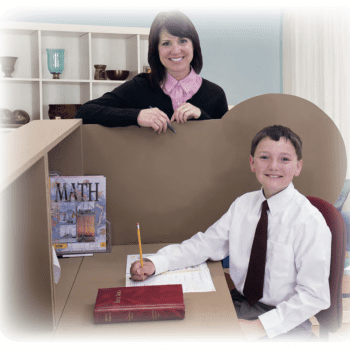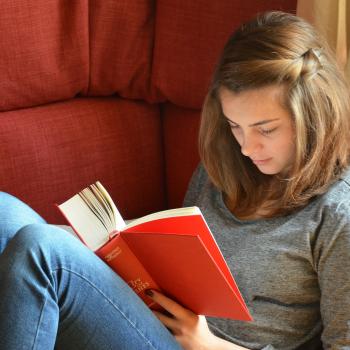A comment on this last weekend’s Homeschool Reflections installment, left by a reader named Gary, perfectly echoed something I’ve said before.
Emily, you present a happy and well-thought-out home-schooling experience. I’m very grateful to Libby for giving you this forum for posting. You exemplify something I have said for a long time: there’s a difference when homeschooling is a CHOICE and when it’s a CAUSE.
We home schooled our eldest daughter for two years, and found the results similarly satisfying. My then wife used the freedom of homeschooling to take my daughter to Art museum and the zoo, which is again, similar to your experience. During that period, my daughter got to socialize with other home school kids, and there was a LOT of play dates set up, as well as group “field trips,” organized by the mothers. I didn’t participate in that aspect so much, but I did keep monitoring my child’s progress, and she was doing very well. She has excelled academically her entire life.
Then came the day when we re-evaluated what our family needs were, and decided it would be be best to enroll her and her younger brother in the public school near us. While that decision worked out great for our kids (no difficult transition at all), you’d have thought we’d declared allegiance with Satan. The other families with which we’d grown friendly through the home school cooperative group now saw us as betrayers to the “cause.” How could we put our precious children in public school? Didn’t we realize the irreparable harm which might come to their faith by letting professional educators guide their educational development? Couldn’t we see the danger in having our children mix with children with non-Christian upbringings? Needless to say, those loyal home school parents soon wanted little to do with us.
Which brings me back to my point, which is one I think your family’s experience validates: for some families home schooling is a CHOICE, and for others it’s a CAUSE. In our family it was always a choice, and while the choice was working for us, we were glad to go that route.
Gary talks of homeschooling as a “choice” as compared to homeschooling as a “cause.” I made this same distinction in a post last year, speaking of homeschooling as “an educational option” as compared to homeschooling as “an identity.”
Because I see drawbacks to homeschooling and intend to send my children to public school, I am often painted as “anti-homeschooling.” But I don’t really see myself like that. In fact, I have never ruled out the possibility of homeschooling at some point in the future. After all, if public schooling somehow goes horrifically wrong for my young daughter, I will look at what other educational options were available – private school, charter school, homeschool.
I think this is where I differ from so many of the ardent homeschool advocates I come in contact with: I see homeschooling as an educational option, but they often seem to see homeschooling as the only option or, indeed, as a mandate rather than an option. Whether they decry the heinous evils of public schools or speak of homeschooling freeing a child from academic oppression, “homeschooling” as an idea seems to become more important than the academic or social well-being of individual children, children who are, after all, very much individuals.
In that post I quoted from a blog post on the same topic by blogger Latebloomer, who was also homeschooled.
It seems like homeschooling went fairly well for my family throughout elementary school. We were part of a homeschool group that had weekly park days and occasional field trips to factories, restaurants, and government offices. My younger brother and I were very independent in our learning, with high reading comprehension, so we could complete our assignments each day with very little input from my mom. Although there was almost no regulation of homeschooling in CA at the time, my mom still made sure that we covered the same general topics as our public school counterparts in each grade, except of course that our education was exclusively from a Christian perspective.
Years of countering criticism of homeschooling, years of being surrounded by other like-minded Christian homeschoolers . . . the effects on my family were detrimental. We lost the ability to objectively evaluate whether homeschooling was still working for our family. Things were obviously falling apart as my brother and I reached our teen years and as my younger sister reached school age, but no one could acknowledge it. By then, our identity as homeschoolers was inseparable from our spiritual, political, and family identity. Failure was not an option.
There are people who homeschool because their child was bullied, or because of disability wasn’t being handled well by the school district, or because the local school’s academics were far below average. And then there are people who homeschool because they believe the public schools are brainwashing children into secular humanism and that the Bible commands parents to personally educate their own children. There are homeschool parents who reevaluate their children’s needs every year, and see returning them to public school as a valid option. And then there are homeschool parents who lose the ability to see anything beyond homeschooling, and continue to homeschool regardless of whether their children are doing well or failing. For some, homeschooling is a choice. For others, it is a cause.
This distinction made by Latebloomer, Gary, myself, and others—a distinction we have ourselves lived and experienced—is, I think, important to bear in mind if one wants to understand homeschoolers and the homeschool phenomenon.









